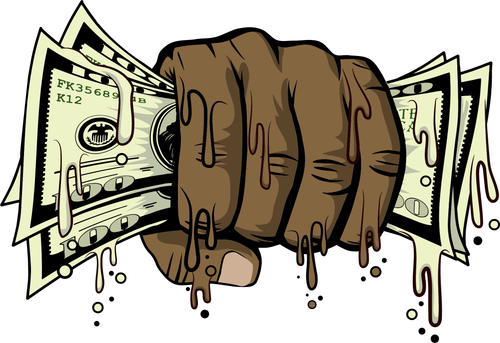On May 31st, 1921, one of the deadliest race massacres in American history occurred in Tulsa, Oklahoma. A white mob descended upon the affluent African-American neighborhood known as Greenwood, also referred to as "Black Wall Street," and proceeded to destroy it. Over the course of two days, an estimated 300 people were killed, 10,000 were left homeless, and over 1,200 buildings were destroyed.
Greenwood was a thriving community that had been established in the early 1900s. It was home to black-owned businesses, banks, and a vibrant social scene. The community was so prosperous that it was often referred to as the "Negro Wall Street" or "Black Wall Street." In fact, Greenwood was one of the most prosperous black communities in the United States at the time.
However, tensions between the white and black communities had been simmering for years. Racism was rampant in Tulsa, and many white residents resented the success of Greenwood. In addition, the Tulsa Tribune, a local newspaper, had published a series of articles that accused a young black man named Dick Rowland of assaulting a white woman in an elevator. Rowland was arrested, and the newspaper's inflammatory coverage of the case helped to stoke racial tensions.
On the evening of May 31st, a group of armed white men gathered outside the Tulsa courthouse where Rowland was being held. A group of black men also arrived at the courthouse, some of them armed, to protect Rowland from a potential lynching. Tensions boiled over, and shots were fired. The white mob quickly outnumbered the black men, and the violence spilled over into Greenwood.
The mob set fire to homes, businesses, and churches in Greenwood. The Oklahoma National Guard was called in, but they did little to stop the violence. In fact, some members of the Guard even participated in the destruction of Greenwood. The violence continued for two days before it finally subsided.
The aftermath of the massacre was devastating. Many black residents were left homeless and without any means of support. The destruction of Greenwood dealt a severe blow to the black community in Tulsa and beyond. It would take decades for the community to rebuild and recover from the violence and destruction.
The events of May 31st, 1921, are a stark reminder of the deep-seated racism that has plagued American society for centuries. The destruction of Black Wall Street was a tragic loss for the African-American community, and a shameful chapter in American history. It is essential that we continue to remember this event and work towards building a more just and equitable society, one that values and uplifts all members of our community, regardless of race or ethnicity.
